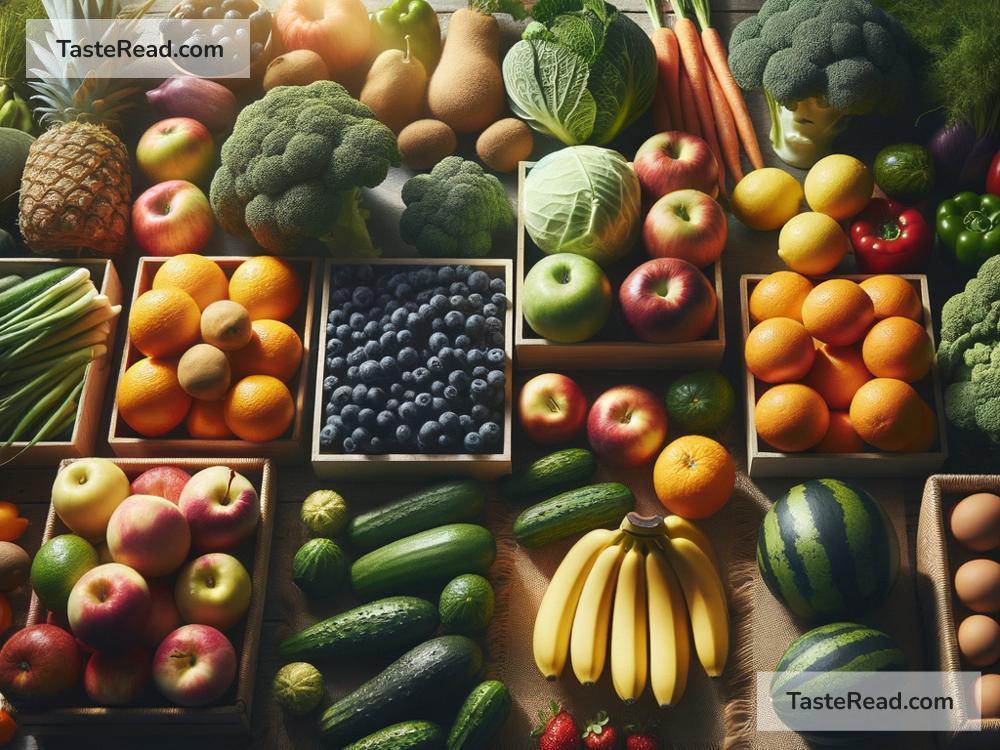The Impact of Organic vs. Conventional Farming on Nutrition
When it comes to choosing food for ourselves and our families, many of us focus on nutrition. We want to make sure that what we eat gives us the vitamins, minerals, and energy we need to stay healthy. But have you ever wondered how farming methods—organic versus conventional—affect the nutritional value of the food we eat? This is a question that researchers have been exploring for years, and the answers can help us make better choices.
Let’s break it down in simple terms and look at how organic farming compares to conventional farming when it comes to the nutritional quality of fruits, vegetables, grains, and other crops.
What Is Organic Farming?
Organic farming uses natural processes to grow crops. Farmers avoid synthetic chemicals like artificial pesticides and fertilizers. Instead, they rely on compost, manure, crop rotation, and natural pest control methods. Organic farmers also avoid genetically modified organisms (GMOs), focusing on using seeds that are natural or heirloom varieties.
Organic farming practices aim to protect the environment, reduce pollution, and promote biodiversity. These methods focus on working with nature rather than trying to control it.
What Is Conventional Farming?
Conventional farming, on the other hand, often uses synthetic chemicals like chemical fertilizers and pesticides to maximize crop yields. These methods aim to produce as much food as possible, as quickly as possible, and with minimal cost. Conventional farming systems sometimes use GMO seeds for crops like corn and soy, which are designed to be resistant to pests or grow more efficiently.
While conventional farming has helped provide food for a growing global population, critics argue that its heavy use of chemicals and focus on quantity over quality may compromise environmental health and the nutritional value of crops.
Is Organic Food More Nutritious?
One of the biggest questions people have is whether organic farming produces more nutritious food. Several studies have explored this, and the results are mixed. Here are some of the key findings:
- Higher Levels of Antioxidants and Vitamins
Research suggests that organic produce often contains more antioxidants than conventionally grown food. Antioxidants are compounds that help protect our cells and are linked to reducing the risk of chronic diseases like heart disease and cancer. For example, organic fruits like apples and blueberries often have higher vitamin C content compared to their conventional counterparts.
One reason is that organic plants aren’t constantly sprayed with synthetic pesticides. Without these pesticides, the plants must produce their own natural defenses, such as antioxidants, which then get passed on to us.
-
Lower Levels of Pesticide Residue
While pesticide residue doesn’t directly affect nutrition, it’s worth noting that organic food has lower levels of these residues. Conventional farming uses a variety of chemical pesticides, which can leave traces on the food we eat. Some people prefer organic foods to avoid exposure to these chemicals, even in small amounts. -
Better Fatty Acid Profiles
Organic dairy products like milk and cheese compared to conventional ones usually contain higher levels of omega-3 fatty acids. Omega-3s are healthy fats that benefit the brain, heart, and overall body development. This difference is partly due to organic farming practices where cows are often fed grass and allowed to roam freely, which improves the quality of their milk.
Where Conventional Farming Excels
It’s important to note that conventional farming isn’t necessarily bad. In many cases, conventionally grown crops still provide excellent nutrition. For instance, conventionally grown vegetables often have similar levels of basic nutrients like potassium, magnesium, and fiber compared to organic ones.
Conventional farming is also more affordable for most families, allowing people to access a variety of fruits and vegetables without worrying about breaking the bank. Organic food tends to cost more because of the extra effort required to grow it.
Other Factors That Affect Nutrition
Whether food is grown organically or conventionally, other factors also influence its nutritional value. For example:
- Soil Quality: Healthy soil leads to healthier plants. Organic farming often focuses more on soil health, which can increase nutrient levels.
- Harvest Time: Food that’s picked at peak ripeness tends to have higher nutrients. Some conventionally grown crops are harvested early to prevent spoilage during transport, potentially reducing their nutritional quality.
- Storage Conditions: Both organic and conventional food lose nutrients if stored for too long or in poor conditions.
Which Should You Choose?
If you can afford to buy organic, it’s often a good choice, especially for crops where pesticide residues are common, like strawberries, spinach, and apples. Organic options may also be better for the environment and contain slightly higher levels of certain nutrients.
However, conventional food is still nutritious and plays a major role in feeding the global population. Don’t feel guilty if you choose conventionally grown food—it’s better to eat a variety of fruits and vegetables, whether organic or not, than to skip them altogether.
Final Thoughts
Both organic and conventional farming methods have their pros and cons when it comes to nutrition. Organic food may have slight advantages in terms of antioxidants, omega-3 levels, and lower pesticide residue, but conventional food still provides essential nutrients that support health.
The most important thing is to maintain a well-balanced diet filled with fresh fruits, vegetables, grains, and lean proteins. Whether organic or conventional, eating whole foods is the best way to prioritize your health!


